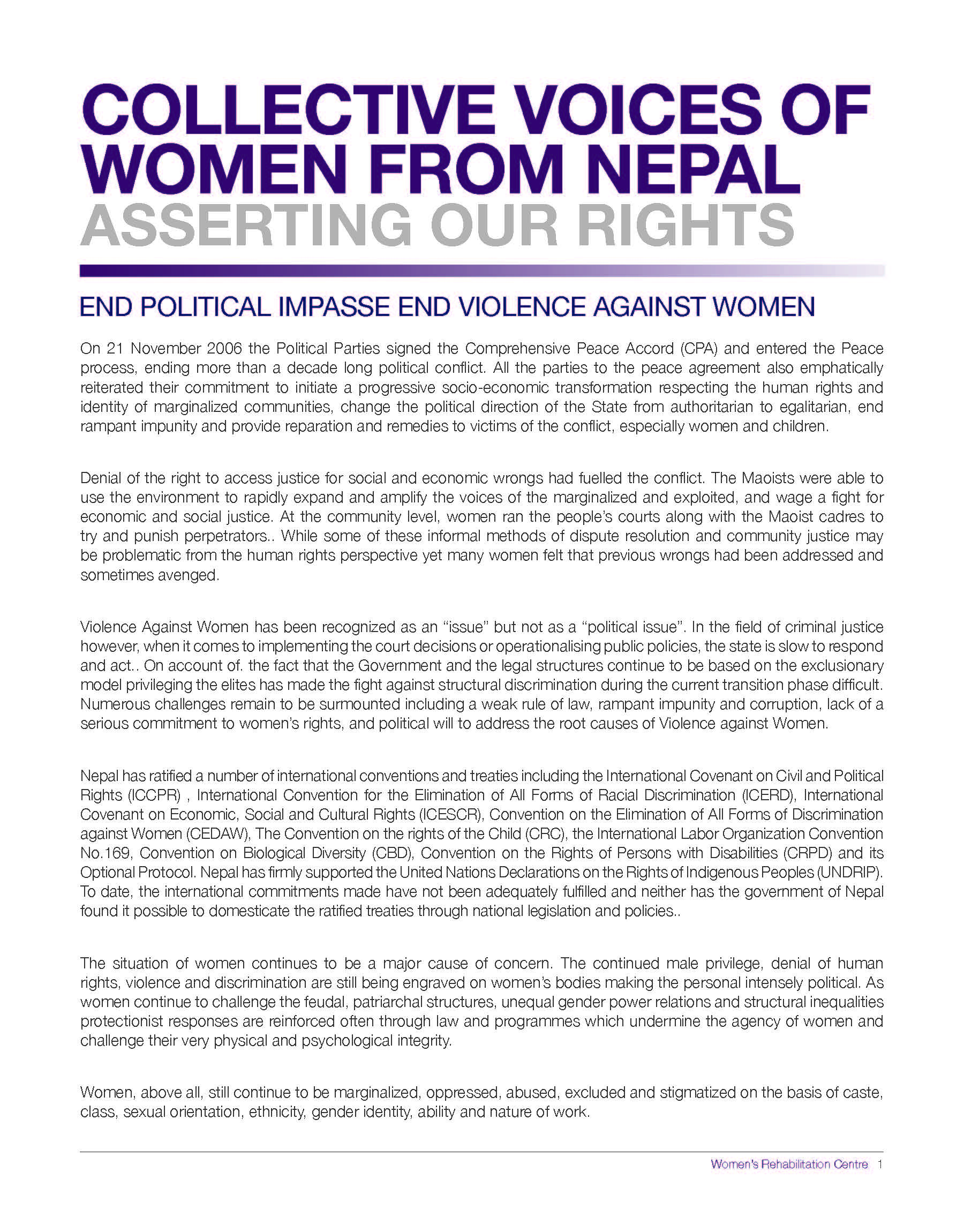END POLITICAL IMPASSE END VIOLENCE AGAINST WOMEN
On 21 November 2006 the Political Parties signed the Comprehensive Peace Accord (CPA) and entered the Peace process, ending more than a decade long political conflict. All the parties to the peace agreement also emphatically reiterated their commitment to initiate a progressive socio-economic transformation respecting the human rights and identity of marginalized communities, change the political direction of the State from authoritarian to egalitarian, end rampant impunity and provide reparation and remedies to victims of the conflict, especially women and children.
Denial of the right to access justice for social and economic wrongs had fuelled the conflict. The Maoists were able to use the environment to rapidly expand and amplify the voices of the marginalized and exploited, and wage a fight for economic and social justice. At the community level, women ran the people’s courts along with the Maoist cadres to try and punish perpetrators.. While some of these informal methods of dispute resolution and community justice may be problematic from the human rights perspective yet many women felt that previous wrongs had been addressed and sometimes avenged.
Violence Against Women has been recognized as an “issue” but not as a “political issue”. In the field of criminal justice however, when it comes to implementing the court decisions or operationalising public policies, the state is slow to respond and act.. On account of. the fact that the Government and the legal structures continue to be based on the exclusionary model privileging the elites has made the fight against structural discrimination during the current transition phase difficult. Numerous challenges remain to be surmounted including a weak rule of law, rampant impunity and corruption, lack of a serious commitment to women’s rights, and political will to address the root causes of Violence against Women.
Nepal has ratified a number of international conventions and treaties including the International Covenant on Civil and Political Rights (ICCPR) , International Convention for the Elimination of All Forms of Racial Discrimination (ICERD), International Covenant on Economic, Social and Cultural Rights (ICESCR), Convention on the Elimination of All Forms of Discrimination against Women (CEDAW), The Convention on the rights of the Child (CRC), the International Labor Organization Convention No.169, Convention on Biological Diversity (CBD), Convention on the Rights of Persons with Disabilities (CRPD) and its Optional Protocol. Nepal has firmly supported the United Nations Declarations on the Rights of Indigenous Peoples (UNDRIP). To date, the international commitments made have not been adequately fulfilled and neither has the government of Nepal found it possible to domesticate the ratified treaties through national legislation and policies..
The situation of women continues to be a major cause of concern. The continued male privilege, denial of human rights, violence and discrimination are still being engraved on women’s bodies making the personal intensely political. As women continue to challenge the feudal, patriarchal structures, unequal gender power relations and structural inequalities protectionist responses are reinforced often through law and programmes which undermine the agency of women and challenge their very physical and psychological integrity.
Women, above all, still continue to be marginalized, oppressed, abused, excluded and stigmatized on the basis of caste, class, sexual orientation, ethnicity, gender identity, ability and nature of work.
